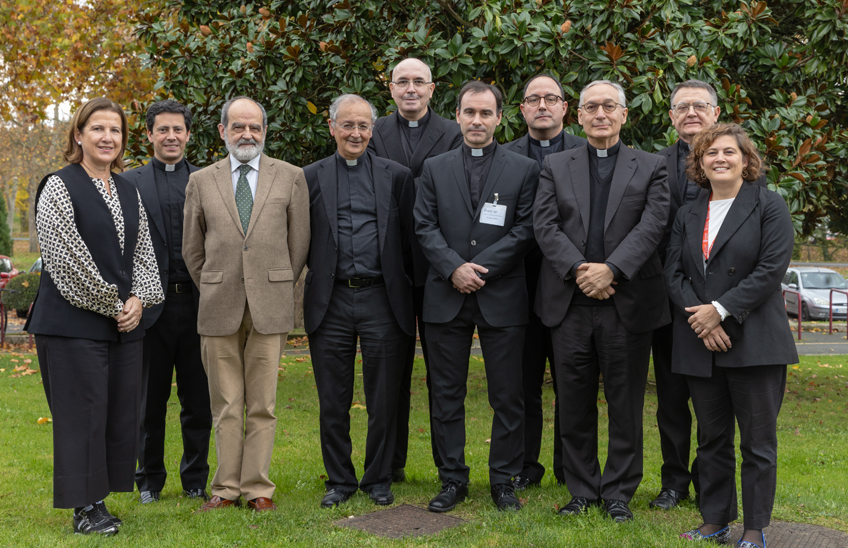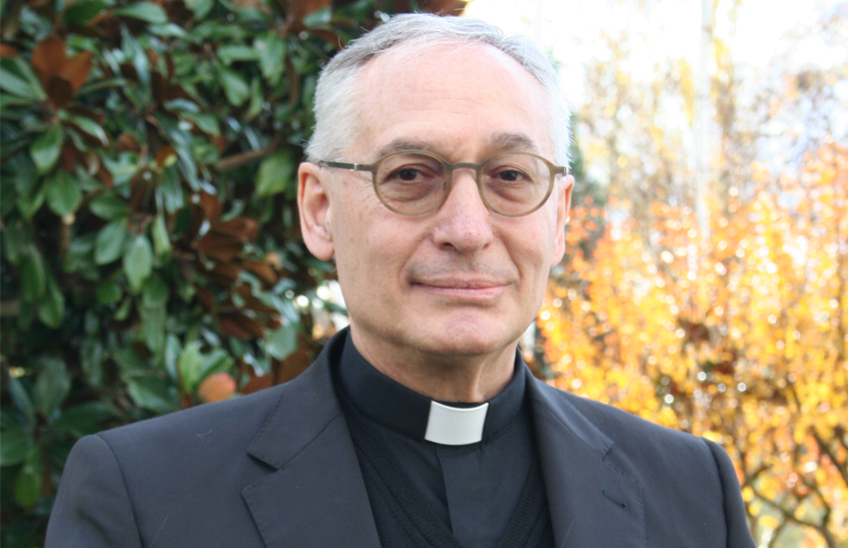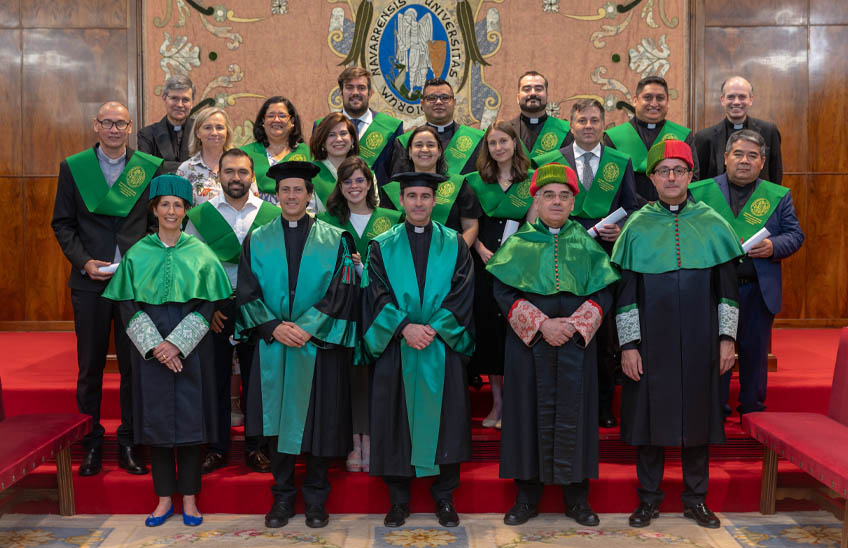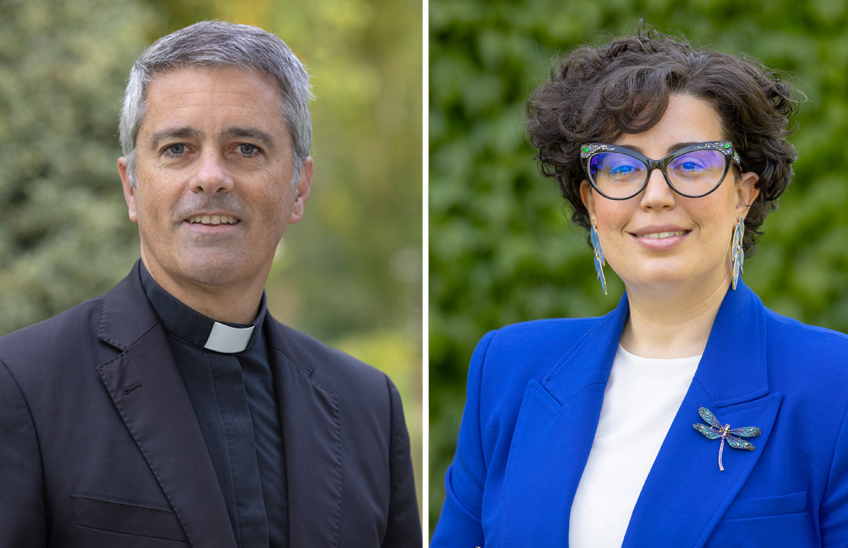Bishop Felipe Heredia assures that a correct anthropological conception is core topic for the good health of marriage.
The judge of the Tribunal of the Roman Rota participated at the University of Navarra in a Course of update of Canon Law focused on 'Canon Marriage Law and Due Process'.

FotoManuelCastells/Speakers and organizers of the XXXII Course of update.
26 | 11 | 2024
"When the psychic-psychological structure of a person is deeply deteriorated, as a consequence of the family environment, the social environment, of a whole series of external influences, a great difficulty is generated at the time of living the matrimonial commitments". Felipe Heredia, judge of the Tribunal of the Roman Rota, who participated in the XXXII Course of update of Canon Law graduate 'Canon Marriage Law and Just Process'.
According to Bishop Heredia, approximately 60% of the cases that occupy the Canon Law today refer to matrimonial law, and the other 40% to criminal cases. He also points out that the most common reasons given for considering a marriage null and void are those related to the psychological structure of the persons.

Asked about the impact of the crisis of faith on marriages, he assures that, regardless of faith or religion, it is a matter of having a correct vision of the person. "The anthropological conception that I have and that I live, I reproduce in the reality of marriage and family. Many times those who have faith get married invalidly. And vice versa, there are marriages of people who do not have faith, but have a correct anthropological vision". In this sense, he thinks that "to spread and implant in society an adequate anthropological conception of marriage, as the first Christians did, would be an authentic revolution, because if there is an anthropological vision lived totally foreign to the natural law, it is difficult for marriage to be sustained. Marriage follows anthropology".
Eight lectures and three colloquia
Throughout the two conference eight presentations and three colloquiums were held. The professor of the University of Navarra, Juan Ignacio Bañares, opened the meeting on Thursday, November 21, with the session 'The fundamental right to marriage: chapters of nullity and legal goods. Subsequently, Montserrat Gas Aixendri, professor at the Universitat Internacional de Catalunya, gave a talk on 'The validity of marriage and lack of faith' at the discussion paper .
Álvaro González Alonso, director del Master's Degree of Matrimonial Law and Canonical Procedural Law of the University of Navarra, gave the third lecture focused on 'Aspects of conformity and non-conformity of the expertise with Christian anthropology in the marriage process'. Once the first three presentations were finished, a colloquium was held on the same.
The fourth session on Thursday was given by the professor of the Pontificia Università della Santa Croce (Rome), Inés Lloréns, entitled 'The study of matrimonial capacity from normality'. position And the last lecture dealt with 'Recent jurisprudence on the exclusion of sacramental dignity' and was given by Professor Miguel Angel Ortiz, of the Pontificia Università della Santa Croce (Rome). These two sessions were followed by a colloquium on their content.
The presentations on Friday, November 22, began with a lecture by Bishop Antonio Die, of the Tribunal of the Rota of the Nunciature in Spain, on 'The rational evaluation of the evidence by the judge'. Felipe Heredia, of the Tribunal of the Roman Rota, who spoke on 'requirements and defects of motivation in canonical sentences'. The third and last lecture, 'Novelties on the civil efficacy of canonical marriage and ecclesiastical marriage decisions in the Spanish legal system' was given by the professor of the University of Zaragoza, Javier Ferrer Ortiz. Before concluding, a colloquium was held on the last three lectures.


